Cape Cod Times
Cape Cod must move faster to clean its ground water and coastal embayments
For generations, Cape Cod’s bays, beaches and ponds have been an essential summer destination for thousands of residents and tourists alike. Days spent boating, kayaking, bird watching, and swimming fill many of our memories. Unfortunately, the precious waters that we depend on for these activities are in trouble.
The Association to Preserve Cape Cod recently released a “State of the Water” report, and the results are sobering. Impaired water quality is threatening two-thirds of the Cape’s bays, and one-third of the area’s ponds.
The culprit? Nutrient pollution, largely from the Cape’s proliferating septic systems.
Significant areas of Cape Cod are not served by a city or town sewer system. Rather, properties in these areas use septic waste systems, which release partially treated wastewater into the ground. In most circumstances, pollutants are removed as the wastewater slowly migrates through soil. But septic systems that might work elsewhere in the commonwealth do not work as planned on the Cape. In this area’s sandy soils, septic wastewater moves too rapidly to remove pollutants before it reaches the water table. Wastewater pours through the sand and quickly reaches groundwater, which then carries pollutants like nitrogen into coastal waters and ponds, often just a few hundred feet away.
The resulting algae outbreaks that residents and visitors see on the surface are merely visible signs of a much larger problem caused by this nitrogen pollution. Outbreaks of algae can destroy habitats and lead to fish kills. On top of that, swimming and boating are much less appealing pastimes when the waters have been polluted with human waste.
The region’s economy depends on healthy waters for swimming, boating, fishing and all of the other commercial and recreational activities that bring thousands of tourists and locals to Cape Cod every summer. However, if we allow pollution of our bays and ponds to go on, the ability of these activities to continue will be in question.
Nutrient pollution in the Cape’s waters has been a problem for years. But recently, development has exploded, and septic systems have proliferated, which has only worsened the health of our waters.
There are steps we can take to clean up this mess, but they will require serious commitments from our governments and neighbors.
Cities and towns are working on expanding and upgrading sewage treatment systems, but this work needs to happen much faster if we are to preserve the Cape’s coastal ecosystems.
Large resorts also need to upgrade their water-treatment facilities to curb their pollution. Some are doing just that, but others are dragging their feet in making the necessary changes, which is why the Conservation Law Foundation has filed a lawsuit against the Wychmere Resort and Beach Club in Harwich Port for continuing to add its wastewater pollution to coastal waters.
These fixes won’t be easy, but they are necessary.
Preserving the Cape’s beautiful waters is a responsibility that rests on all of us, and we will only be successful if every town and resort does their share. Every resident and visitor deserves the opportunity to enjoy the area’s bays, beaches and ponds for years to come. To preserve that opportunity, individual polluters as well as town officials must commit to stopping this dangerous pollution. We must protect our waters (and economy) for future generations.
Chris Kilian is vice president of strategic litigation at the Conservation Law Foundation in Boston.
Cape Cod Times – Cape Cod must move faster to clean its ground water and coastal embayments
